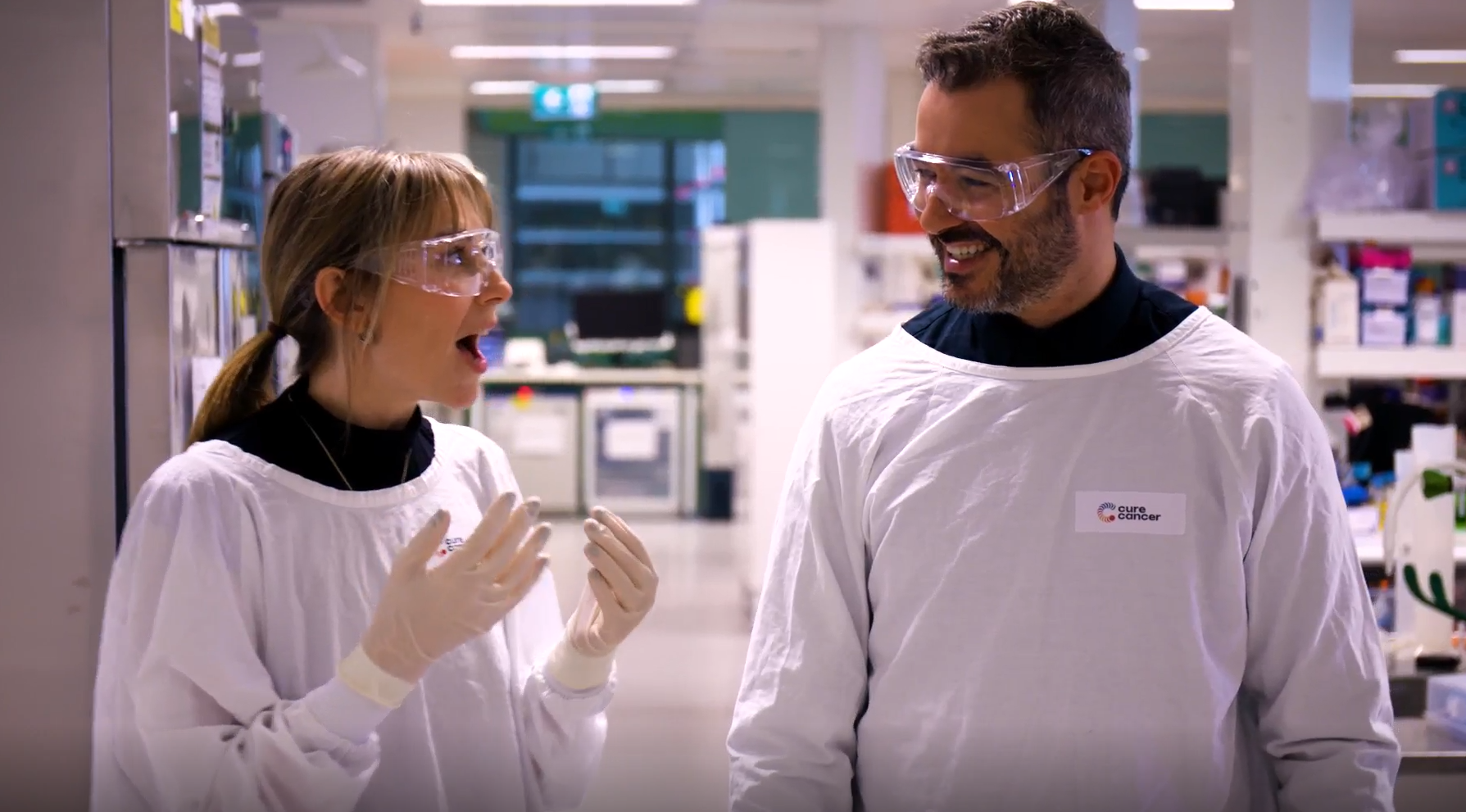Sarcoma: The forgotten cancer that is commonly diagnosed in children
By The Cure Cancer Team
Published 25 July 2022, updated September 2025
In September 2025, Kash passed away on 7 September after four years with sarcoma. Zubin, her uncle, was in Los Angeles at the time and shared, “I was honoured to spend her last day doing fun things with her.” We are keeping her story with her family’s permission to honour her life and help others understand sarcoma.

A photo of Kasha (right), who was diagnosed with osteosarcoma at 15 years old, with Zubin’s daughter, Alee (left), taken a few years ago.
When Zubin Appoo learned that his 15-year-old niece Kash had been diagnosed with osteosarcoma, he felt compelled to act. Although Kash lived overseas, Zubin found a way to stand by her from afar – raising funds and awareness to support those affected by sarcoma.
Before Kash's diagnosis, Zubin admits he knew very little about sarcoma. Like many Australians, he hadn’t realised that this rare cancer, which affects bones and connective tissues, disproportionately impacts children, adolescents and young adults. Despite its severity, sarcoma remains significantly underfunded and under-recognised in cancer research.

Zubin shaved his head and beard after raising an incredible $16,000 for early-career cancer research.
Stories like Kash's matter. They highlight not just the need for awareness, but the urgent need for investment into research that can improve survival rates and treatment options.
Despite the sadness of her loss, Kash’s story continues to shine a light on why awareness and research matter for rare cancers that affect children and young people.
Amazing supporters like Zubin have a crucial role to play in helping to fund research and clinical trials aimed at improving patient outcomes, especially when it comes to rare cancer subtypes like osteosarcoma that tend to be underfunded.
What do we know about Osteosarcoma?

Osteosarcoma is a bone cancer and subtype of sarcoma, an extremely rare cancer type that develops in the bones and soft tissues.
Commonly diagnosed in children, sarcoma is often dubbed the ‘forgotten cancer’ because less than 1% of cancer research funding is allocated to sarcoma. This is despite the fact that sarcomas are difficult to detect in the crucial early stages, where survival rates are highest, as well as complicated to treat, often involving an aggressive treatment regime.
Sarcoma in Australia

Though sarcoma makes up only 1% of all adult cancers and 10% of cancers diagnosed among adolescents and young adults, it is one of the most common cancers affecting children, accounting for about 20% of cancer diagnoses. The 5-year survival rates of 70% for bone sarcomas and 67% for soft tissue sarcomas depend on the cancer stage, nature of the tumour/s, how patients respond to the limited treatment options, and whether patients have metastatic sarcoma, which is notorious for its poor patient outcomes. These 5-year survival rates have barely improved in the last thirty years, especially for patients with metastatic sarcoma.
Cutting-edge sarcoma research

What if there was a better answer for every child facing a rare cancer?
Sarcoma is a devastating cancer that affects bones and connective tissues, often striking young people in the prime of their lives. It’s rare, complex and underfunded – which means promising ideas often struggle to get off the ground.
That’s why Cure Cancer is backing researchers who dare to ask bold questions and pursue better outcomes, even when the odds are steep.
Dr Mark Pinese is one of those researchers. With Cure Cancer’s early support, he began investigating the genetic factors that determine sarcoma risk. Today, he’s working on national initiatives to identify children who are genetically predisposed to rare cancers like sarcoma – because finding the risk early gives doctors a chance to act sooner, when survival rates are higher.
Dr Ben Wylie is developing a revolutionary hydrogel that delivers immunotherapy directly to the tumour site after surgery. This biologically gel activates the immune system to destroy any remaining cancer cells – potentially reducing the need for chemotherapy or radiation in children recovering from sarcoma. It’s already showing strong results in preclinical trials, bringing hope for kinder, more effective treatments.
A/Prof Fernando Guimaraes is reimagining how we treat sarcoma at a cellular level. His team is developing CAR-engineered natural killer (NK) cell therapies that target aggressive childhood sarcomas, with early studies showing tumour suppression in laboratory models. These next-generation therapies are offering new hope in a space where there have been few treatment advances for decades.
Each of these breakthroughs started with early support and a powerful question:





